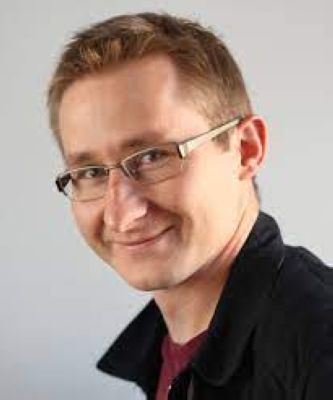BERLIN — An old joke among non-Americans is that they, too, deserve a vote in US presidential elections, given how central that office is to their lives. When Germany’s Christian Democratic Union (CDU) met this month to select a new leader, Europeans probably felt the same way.
Not only is the CDU Germany’s largest party; it is also the largest in the European Union. At its recent congress in Hamburg, the word “Europe” was uttered constantly, with most speakers declaring a sense of responsibility for what happens across the EU.
The election of Annegret Kramp-Karrenbauer to succeed German Chancellor Angela Merkel as party leader reflects this sentiment, as it amounts to a bid for continuity. As a Merkel loyalist, Kramp-Karrenbauer is not likely to push the chancellor out before her term ends in 2021.
Throughout Merkel’s 13 years in the chancellorship, the German government’s policies have been almost exclusively reactive. Even the “decision” to admit more than 1 million refugees in 2015 was really just a decision not to place barbed wire and armed soldiers at Germany’s borders, imagine the world’s reaction to that image. Likewise, Merkel’s decisions to phase out Germany’s nuclear power plants and impose sanctions on Russia, while decisive and hard, were defensive.
Among the three contenders to replace Merkel, Friedrich Merz was the most vocal proponent of a more active approach at home, within Europe, and abroad. Some saw in Merz a chance to restore the CDU’s right-wing character, thereby saving Germany’s two-party system. As matters stand, the CDU and the Social Democratic Party have both come to represent the centre, while the Greens and the populist Alternative für Deutschland have carved out clear ideological positions on the left and right, respectively.
That will now remain the case. The election of Kramp-Karrenbauer means that the slow unraveling of Germany’s two-party system will continue. Future federal governments will have to be based on fragile coalitions, and the German presence in the European parliament will be fragmented among different parties, rendering it less effective. Most likely, German conservatives in the European People’s Party (EPP) will have to solicit the support of Hungarian strongman Viktor Orbán, whose Fidesz party commands an increasingly important voting bloc within the party group.
Apparently, Merz came off as too cold, analytical and impersonal for the CDU delegates. The conservatism of today’s CDU is based not on ideology, but on the need for community. The party requires a mother or father figure at the helm, in the tradition of former Chancellors Konrad Adenauer, Helmut Kohl and, now, Merkel, whose nickname is “Mutti”.
Most likely, Kramp-Karrenbauer was elected, by a slim margin, because her speech at the congress centred on her personal history and experiences, and her commitments to her party and home region. In response to those who see her as a “mini-Merkel”, she expounded on her 18 years as minister and minister-president of the state of Saarland.
Merz, by contrast, said nothing about himself, and focused entirely on foreign and economic policy. In keeping with his cautious support for French President Emmanuel Macron’s EU-reform proposals, he called for European unity, arguing that the United States would not respect a Europe that did not speak with one voice. He hailed Germany as the most open country in the world, but warned that openness has its limits. And at a time of rising illiberalism, he championed the rule of law.
The CDU delegates rejected Merz but not his programme, suggesting that they would like to see Kramp-Karrenbauer pursue a Merzian policy agenda. This fact has not been lost on Kramp-Karrenbauer and likely explains why she chose Paul Ziemiak as the party’s general secretary. Ziemiak favoured Merz and Jens Spahn over Kramp-Karrenbauer in the leadership race, and has been one of Merkel’s most vocal detractors within the CDU.
Ziemiak has openly criticised Germany’s admission of economic migrants, even though he is an immigrant from Poland. Still, as a Polish-speaking, Polish-born politician in Germany, he may show a special understanding for Germany’s important eastern neighbor, as has Merkel, whose grandfather changed his surname from Kázmierczak to Kasner in 1930. At a minimum, he will not be as difficult a partner for Orbán and Poland’s de facto leader, Jarosław Kaczynski, as Merz or Spahn would have been.
Interestingly, all three candidates in the CDU leadership contest raised concerns about Germany’s partnership with Russia on the Nord Stream 2 gas pipeline. It would seem that they are of the same mind as Manfred Weber, the EPP’s Spitzenkandidat in the contest for the European Commission presidency, which will be decided after the May 2019 European parliament election.
At this point, Kramp-Karrenbauer’s views on economic and foreign policy are largely unknown. She avoided these issues entirely during her leadership campaign, because she did not want to give the impression that her remit as CDU leader would overlap with that of Merkel as chancellor. With a series of local elections coming up in 2019, Kramp-Karrenbauer will likely focus on domestic politics, and Merkel will see to the country’s foreign affairs.
With France suffering the return of violent street protests and the United Kingdom’s Brexit circus descending into chaos, Germany might look like an oasis of relative stability. But the oasis is a mirage. The reality is a deep-seated sclerosis that has long hindered desperately needed EU reforms.
Given the heightened tensions within the EU and between Europe and the US, Germany’s habitual defensive politics will no longer suffice. The country now finds itself in the crossfire of an escalating Sino-American trade war. It could have avoided this situation if it had taken the initiative to reform the EU and the eurozone earlier, when it had the chance. Kramp-Karrenbauer’s rise provides no reason to expect that it will change course now.
Sławomir Sierakowski, founder of the Krytyka Polityczna movement, is director of the Institute for Advanced Study in Warsaw and a fellow at the Robert Bosch Academy in Berlin. Copyright: Project Syndicate, 2018.
www.project-syndicate.org
